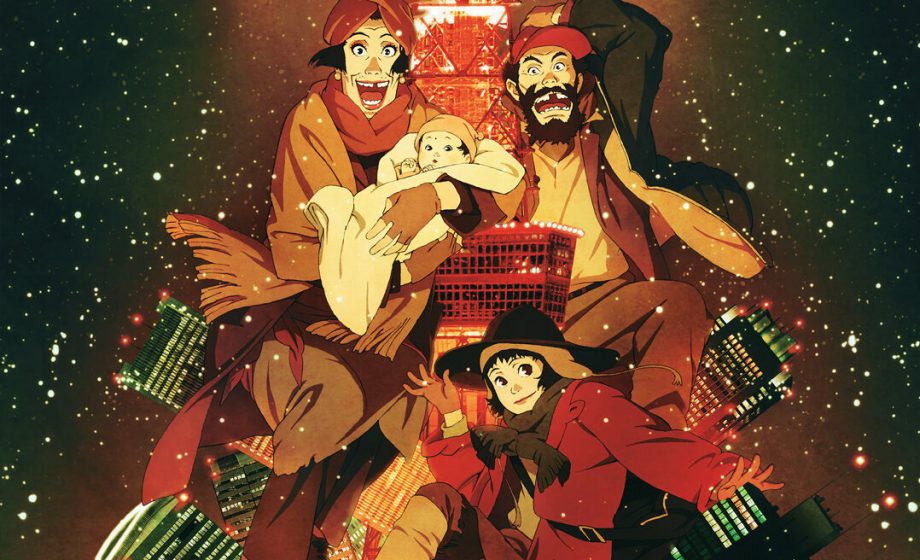It’s at times hard to tell what holiday movies will remain in people’s annual queues for long. With a plethora of events across the long, dark winter months to inspire narratives, there’s a wealth of avenues for cinema to take and—more often than not—they’re backed up with cheap and formulaic entertainment. One holiday anime film in particular seems like such an underdog in the grand scheme of offerings but with its unique charms and emotionally raw exploration, Tokyo Godfathers has endured and thrived over the last twenty years.
Tokyo Godfathers is the brainchild of iconic director Satoshi Kon, the late creator behind the psychological thriller hits of Perfect Blue and Paprika. While one might not expect a film straddling Christmas and New Years to come out of such a mind, Kon somehow struck gold with this endearing exploration of humanity inspired by the 1948 Western 3 Godfathers. Its popularity has endured strongly enough that the film even received a new dub in 2020, seventeen years after its original release.

The film follows a homeless trio in the streets of Japan—an alcoholic and absent father named Gin, a former drag performer named Hana, and a teenage runaway named Miyuki—as they find a baby abandoned in the trash on Christmas Eve night. As the group desperately tries to follow the thread back to her birth parents, the group ends up falling into the depths of their pasts, grappling with the families they have run from, and doing the best they can with their own abrasive chosen family. A strikingly detailed depiction of grime and glamour with truly cinematic animation, it is a visual and narrative feast of a film.
Tokyo Godfathers is a raucous affair to say the very least. There is a shocking level of action packed into its runtime, the majority of it infused with a realistic tension that keeps the momentum charging forward. This high-octane, high-stakes energy is matched beat for beat with profound periods of connection. In a truly humanizing portrayal of people suffering through homelessness, we are subject to very real horrors and societal prejudices directed at this hard-luck trio. Tactfully and artfully veering from bizarre misfortunes on their journey to gutting encounters of mental illness to hilarious odd-couple shenanigans, it’s a film that races across a fine line with exceptional skill.

Without a doubt, there are aspects of Tokyo Godfathers that are dated (though mercifully they are mostly front-loaded). Particularly, Gin’s transphobic comments to Hana are an immediate speed bump at the start for a character we’re meant to empathize with. But it’s not wrong that Gin is certainly no paragon of virtue in the start, and in no way does it feel we’re meant to agree with his hate speech. It also feels like the studios understood this need for an update in casting an actual trans actor (Shakina Nayfack) as Hana in the new English dub, whose performance adds a rich depth to the character. The truly mind-boggling and jarringly incongruous score, however, has received no update—but one can’t deny it is part of the film’s charm.
While it may not receive the same mainstream idolization that Western animated holiday films get, Tokyo Godfathers offers something that few of those can grasp—true heart. Not heart in the idea of care and warmth for the sake of care and warmth; heart in the purest sense of humanity, showing all of its rough and bleeding aspects but still beating despite it all. There is a tenderness and vulnerability in this film that speaks to the ideals and ills of this season, and it is no wonder that this strange little offering has persisted as a beloved snapshot of life among a pile of, well, trash.





